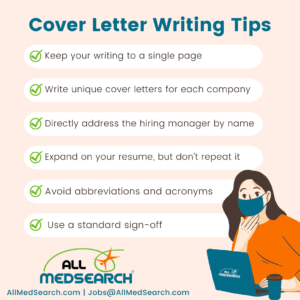
In our modern era of applying for careers over the Internet, you have most likely seen in job applications the option (or requirement!) to publish a cover letter. You may ask yourself, “Why should I even bother?”. It turns out a cover letter plays a beneficial role in establishing first impressions to a hiring manager. In this blog post we will discuss the importance of cover letters and some pointers in your writing that can help you stand out from the competition, so you can score that next interview.
The intended function of any piece of writing is to convey ideas in a professional, understandable, and communicable fashion. In a cover letter, you are writing to the hiring manager of the company to express your interest in joining their ranks. Many companies do not require a cover letter, so you will not have to submit one; but when a company does require it, it is extra important to make your letter stand out from the rest.
Remember a cover letter is not your resume, so it should not be chock-full of specific details and information regarding your work history, education, and certifications, but more of a thorough, detailed, and hand-crafted explanation as to why you know you would be a good fit at their company. Typically, people will refer to their work histories in a cover letter to help bolster their qualifications and write a more conveying message, but they should not re-write their resume into a cover letter. Grammar, punctuation, and proper vocabulary go a long way in impressing hiring managers as well (You would not write a cover letter to work for Marvel and call Spider-Man “spiderman”, right?); this means you should not use abbreviations, acronyms, or any words that can come off as unprofessional. Showing that you have done your own homework will propel you miles ahead of other applicants; if you illustrate how your own values align with the company’s values, then hiring managers will be more likely to consider your application. It is imperative you keep the writing limited to a single page, however; hiring managers are excited to learn about you, but they do not have the time or patience to read an essay about your life story. Lastly, make sure you address the hiring manager by name (if you can, otherwise use To Whom It May Concern:) and finish your message with a proper sign-off (Regards, Best, Sincerely, Etc).
When you write your next exciting cover letter, be sure to keep these ideas ruminating in the back of your head. If you need to, we have provided a simple graphic below which reiterates what we’ve covered in this blog post. Happy hunting, and may you score the job of your dreams!
